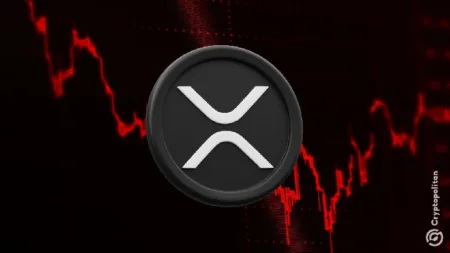House Majority Whip Tom Emmer (R-MN) is optimistic that support for crypto legislation has reached a critical mass in the United States—and even believes that FIT21, a stalled crypto market structure bill, could become law before the holidays.
“I think that bill—at the end of the year, if there’s an end of the year spending bill—maybe some parts of that bill end up in the final deal,” Emmer told Decrypt of FIT21 during an interview Monday at the Messari Mainnet conference in New York.
FIT21 would establish a federal framework for the regulation of digital assets that would be jointly overseen by the Commodity Futures Trading Commission (CFTC) and the U.S. Securities and Exchange Commission (SEC). The bill would allow issuers to self-certify assets as digital commodities, and has been blasted by both President Joe Biden and SEC Chair Gary Gensler.
Though FIT21 passed a vote in the House this spring with key support from 71 Democrats, including Nancy Pelosi, the bill has since stalled in the Senate—where no vote on its potential passage has been scheduled. As a standalone bill, FIT21 would not only need to pass the Senate, but also receive President Biden’s signature to become law.
If elements of the bill were to become attached to an end-of-year spending bill, however, that could significantly streamline the process. Effectively, the ability of the federal government to function would be on the line as leverage, and President Biden would likely be less inclined to veto an entire government funding package due to a few pro-crypto elements.
Last week, Congress passed a three-month funding extension to avoid a government shutdown, essentially kicking the can down the road until December 20, when a shutdown will trigger unless another funding deal can be reached. End-of-year spending deals routinely devolve into high-stakes affairs where special carve-outs for certain interests are added to get the bill over the finish line—and keep the federal government open.
Emmer is confident that given FIT21’s bipartisan popularity, key components of the bill could find their way into law via such a holiday season, at-the-buzzer deal. If that doesn’t happen though, he thinks the bill is well poised to pass shortly thereafter.
“Even if it doesn’t [happen],” Emmer said, “in the next year we’re going to see some movement.”
Additional reporting by Liz Napolitano
Edited by Andrew Hayward
Read the full article here









